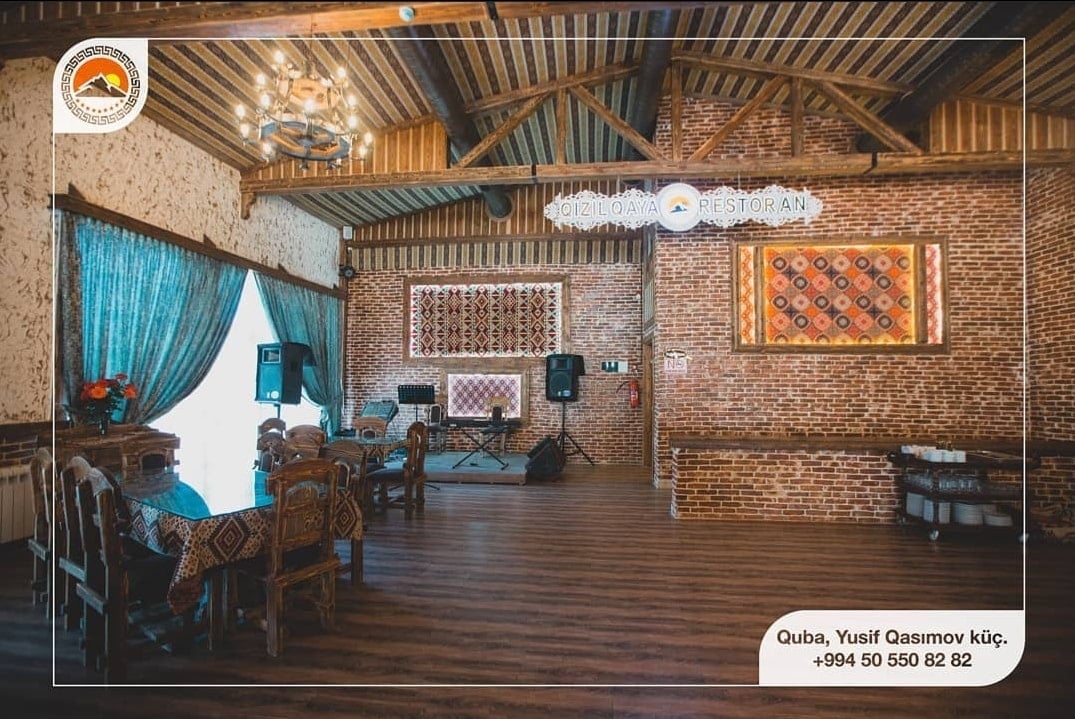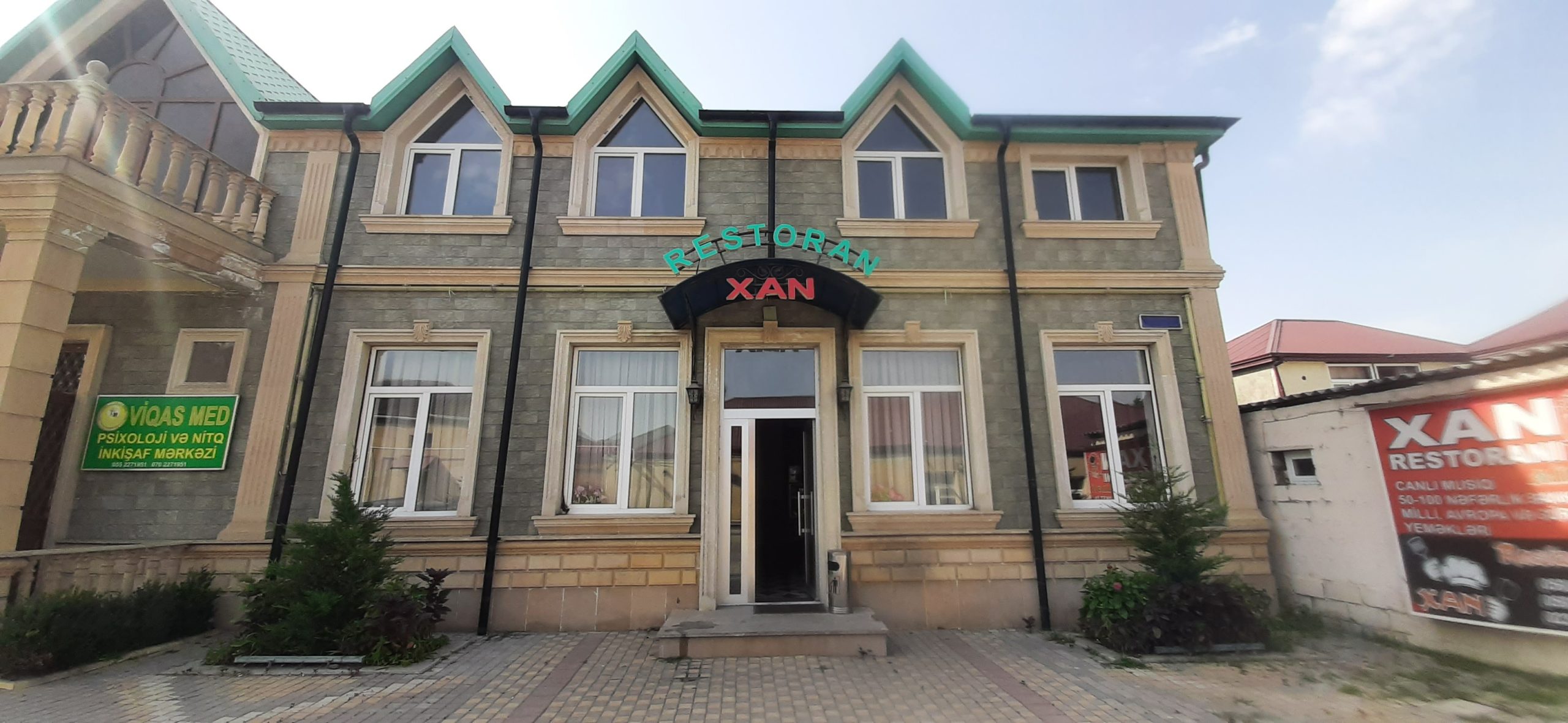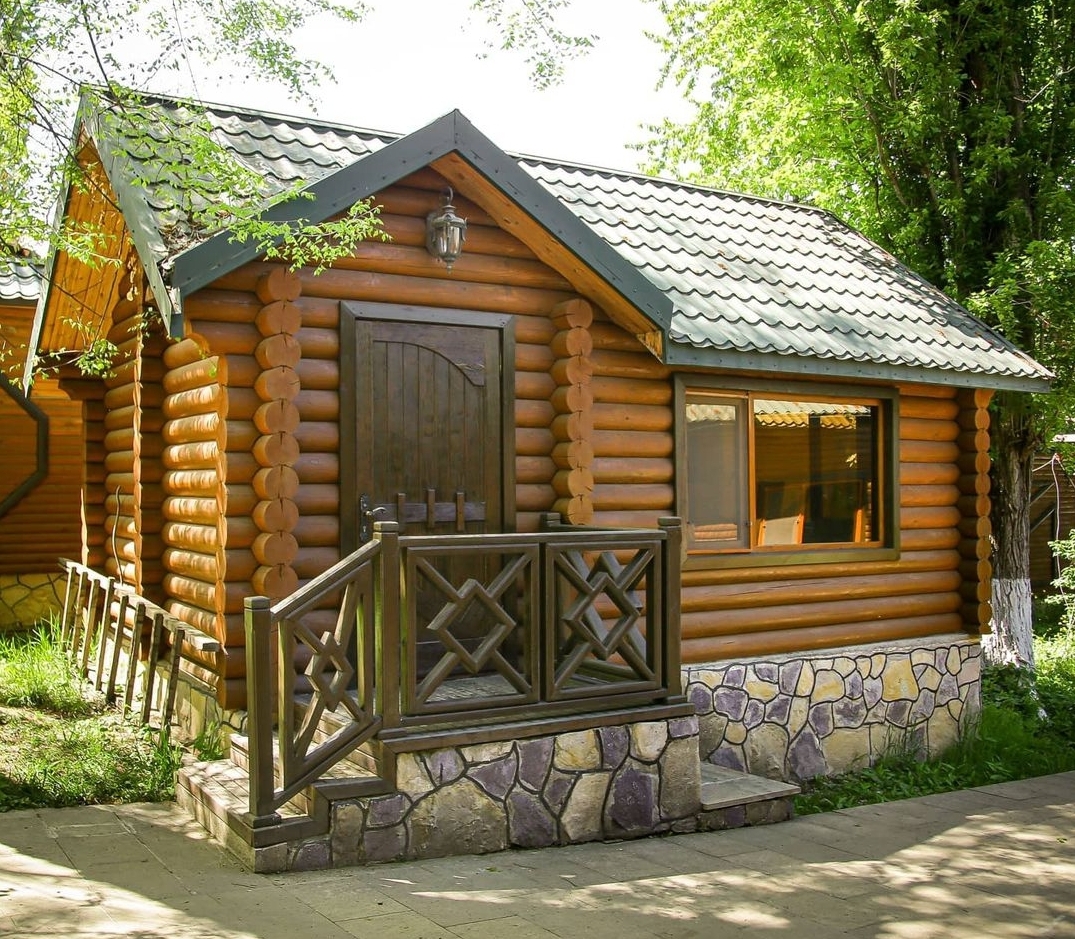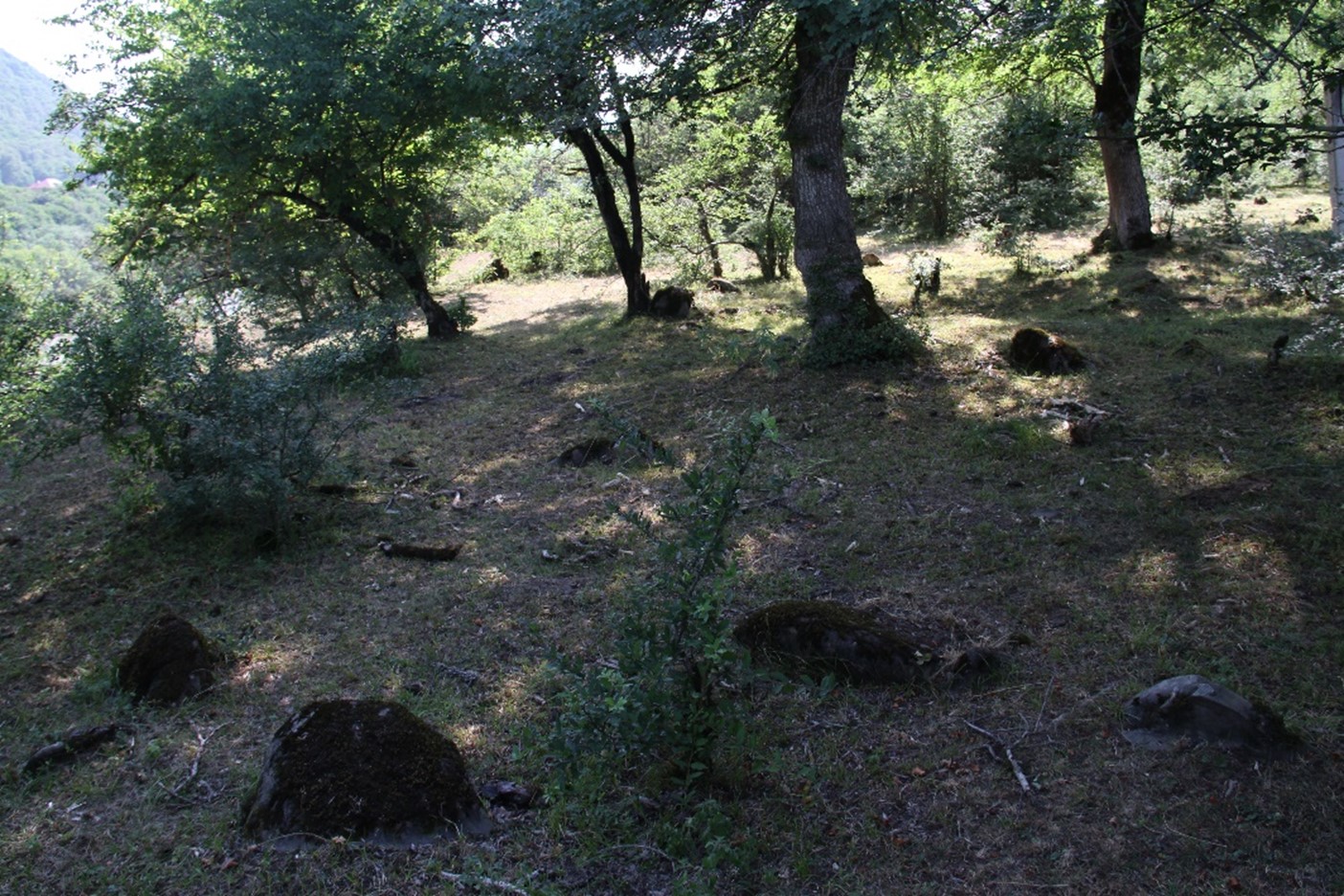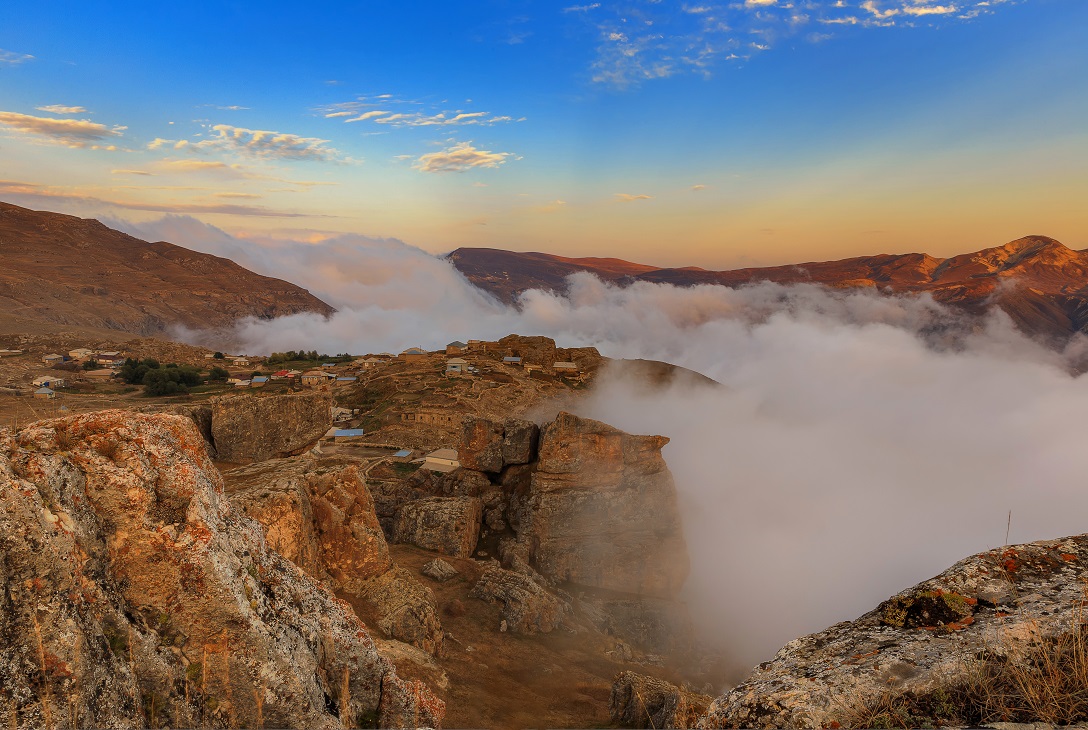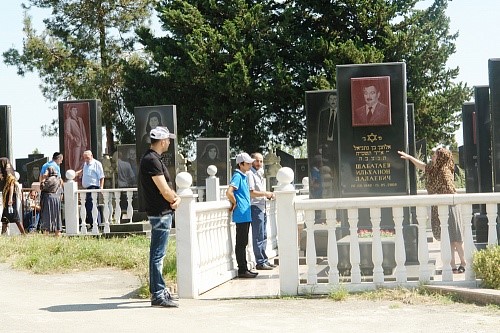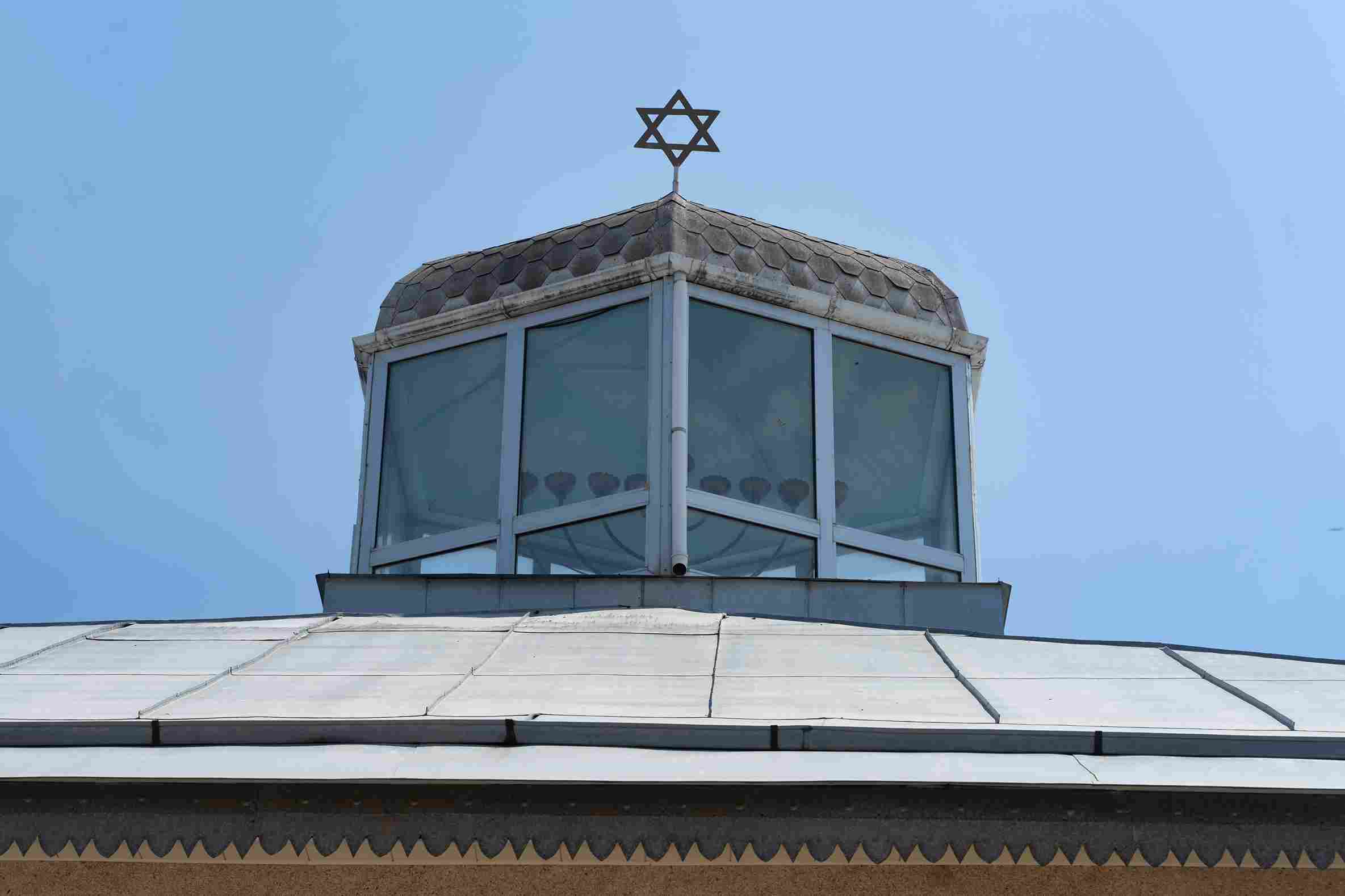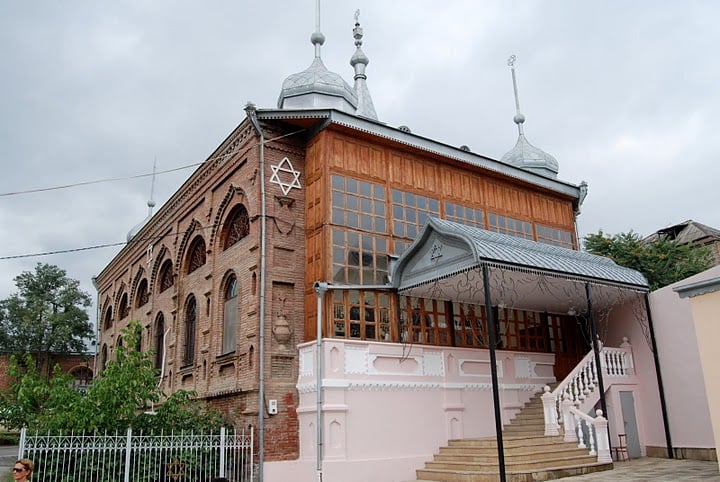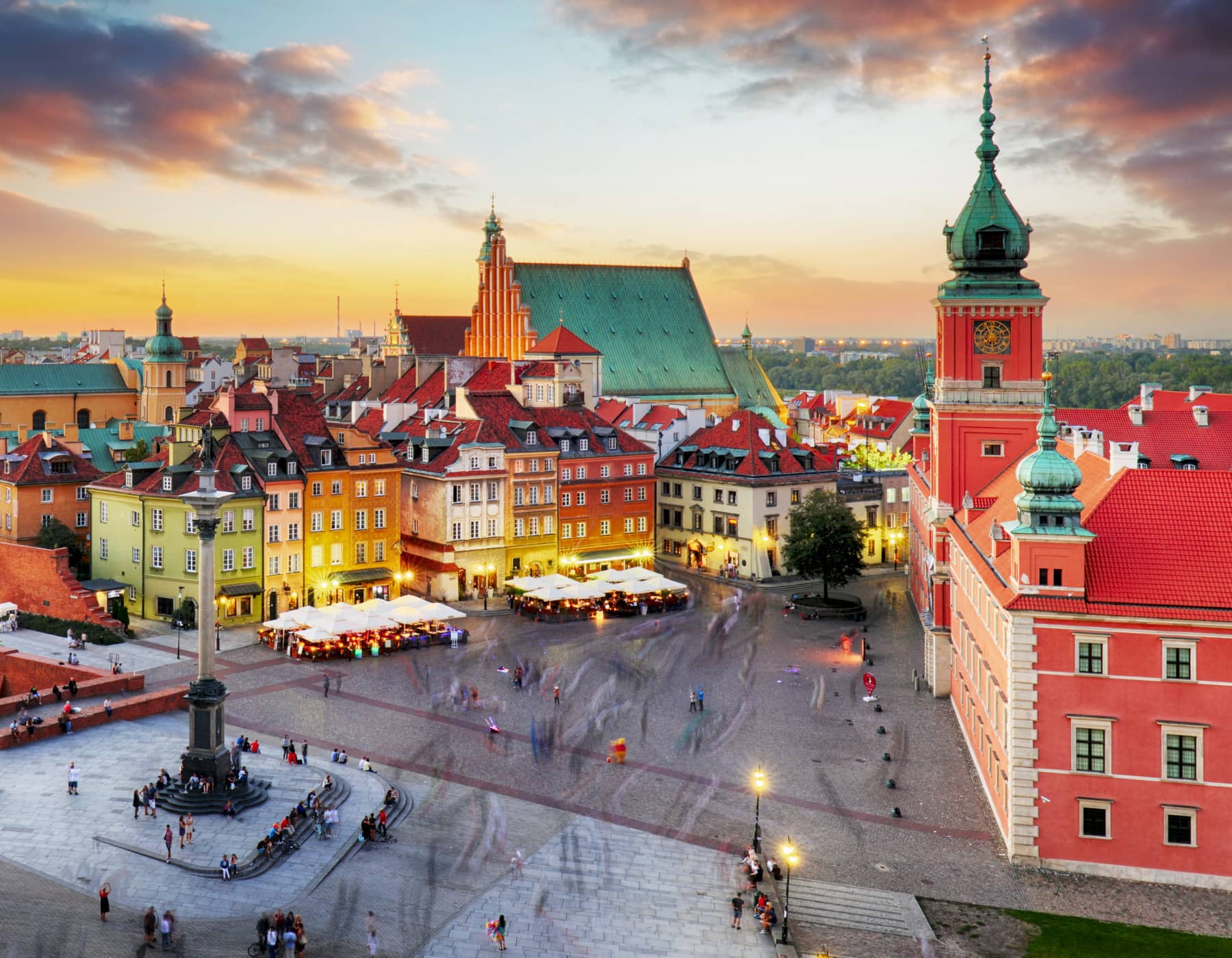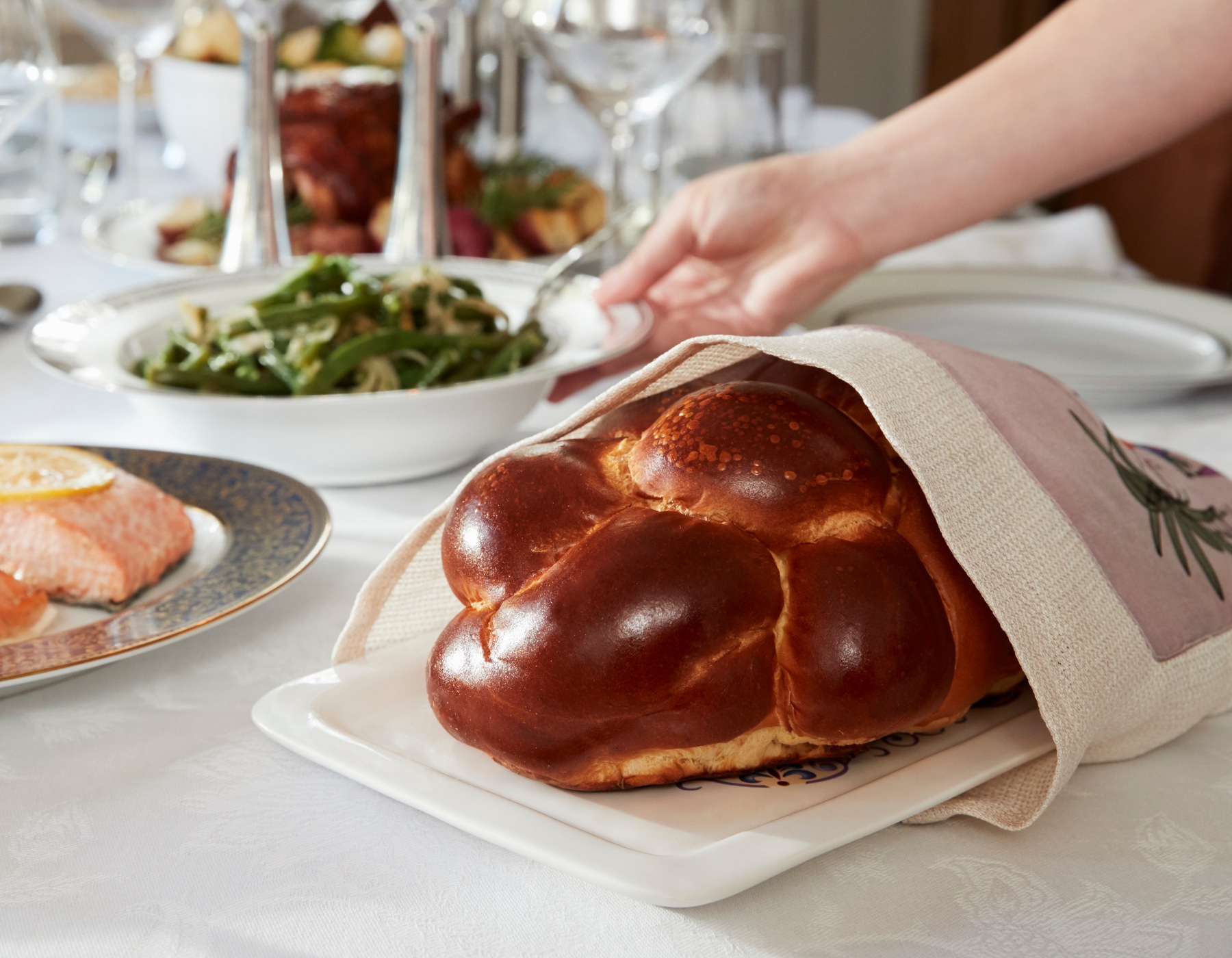The “Golden Rock” restaurant has delicious food with a beautifully designed atmosphere,to make your stay in Gube more pleasant and memorable. The dishes include stuffed grape leaves, grilled meats and vegetables, fresh salad, pizza, and beer.
Archives: Directory listings
Directory listings
Xan
Located 3 km far from Red Village, Xan offers a wide variety of Turkish and Azerbaijani foods.
Serin Restorani
3.6 km far from Red Village by car (Tağlı körpü side)
Old Qulqat cemetery in the village of Qeleduz
Six to seven km away from Qirmizi Qasaba along the main highway to Qusar, just after the village of Qeleduz (Qələdüz), one can find an ancient cemetery, which is believed to the cemetery of the ancient Jewish settlement of Qulqat.
Qriz village
Qriz is a village on the eastern slope of the Shahdagh mountains inhabited by a small ethnic group of Qriz people. According to the legend, Jewish populations found shelter in Qriz, as well as other high mountains around it, during the persecutions of Nadir Shah.
Cemetery in Qirmizi Qasaba
The cemetery of Qirmizi Qasaba is located higher than the village on the slope of the hill. The earliest gravestones here date back to 1807 and 1814.
Gilaki Synagogue
The Gilaki Synagogue is the synagogue in which
today the residents of Red Settlement pray and which has never been closed. It
was built by natives of the Persian province of Gilan.
The architect of this temple is Hillel Ben Haim and his name is inscribed on the brick facade. The temple was constructed in 1896, according to the inscription on the foundation stone. The synagogue has 12 windows, one for each of Israel’s tribes. The bimah, situated under the wooden dome, is a two-tiered octahedral platform with stairs that houses a massive pulpit for reading the Torah scroll.
In 2000 during the renovation
of one of the walls of the synagogue a hiding place was discovered in which
about 50 cases for Torah scrolls were kept. It is likely that this hiding place
(a kind of genizah) contained the Torahs from all the synagogues in Red
Settlement that were confiscated by the Soviet government in the 1930s.
Six Dome Synagogue – “Alti Gumbaz”
Alti Gumbaz Synagogue in the Red Village (Isaak Khanukov str., 9) was built in 1888 by architect Hillel ben Haim, who contributed greatly to the development of the architectural landscape of the town.
The six domes of this hexagonal-shaped synagogue are an homage to the emigrants from Qulqat who moved to the modern-day Qirmizi Qasaba six days after the invitation of Huseynali Khan of Quba. During the Soviet years, the building was used as a warehouse, then a sewing workshop. In 1991, the building was again allowed to be used as a synagogue, and in 1995, it was thoroughly restored. Daily morning and evening prayers, as well as special prayers and rituals on holidays and, are held in the synagogue. The oriental-style synagogue is mainly used in the summertime.
9-Day Jewish Poland Heritage Tour
Experience a unique and incredible journey through Poland spanning 1000 years of Polish Jewish history and culminating with the reawakening of Jewish life in Poland today. Prior to WWII, Poland was home to the largest and most vibrant Jewish community in Europe. It was referred to as the epicenter of Jewish learning and culture for hundreds of years. More than sixty years after the Holocaust, Poland is once again home to a Jewish community proud of its heritage and culture. Join us as we explore the past, encounter the present and look ahead to the future!
Coming Together: The Shabbat Project, Midburn Festival, and InDNegev
Coming Together: The Shabbat Project, Midburn Festival, and InDNegev
Jewish Spirituality in Food and Music
Jewish spiritually exists outside the four walls of a synagogue found in the weekly rituals and everyday lives of the community. Every week Jews around the world come together at the Shabbat table for food, singing, and family. We are reminded of the importance of fostering good relations with one another. That it is necessary to not only feed our bodies but feed our emotional bonds.
This October in Israel you can experience the full scope of Jewish spirituality through community, Shabbat food, and plenty of music. Sit down at an international Shabbat table or head out to the Negev to experience a variety of music festivals hosted in Israel’s holy desert (InDNegev & Midburn).
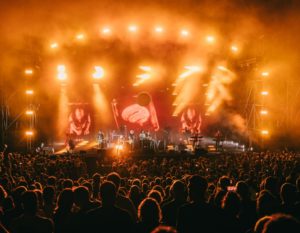
InDNegev: Israel’s Reigning Indie Music Festival
The desert has always been a place of discovery and transformation for the Jewish people. What better place than to discover the newest and brightest of Israel’s music stars. Held near the historic Mitzpe Gevulot InDNegev gives independent Israeli artists the opportunity to reach a wider audience. This festival is truly a mix of any and all upcoming and traditional Israeli genres. This year’s lineup will include Jasmine Mualem, Mercedes Band, Lola Marsh, Red Axes and many more.
After the pandemic year these artists are bursting at the seems to showcase the fruits of their labors. Performances are held at six different stage venues and the camping accommodations for this year have been stepped up. Festival patrons can expect a bar complex and multiple food vendors from across Israel. Music forms and strengthens a community spirit. So come together for some good times and great music at InDNegev. This three day long music experience begins on September 30th so don’t wait too long to buy your tickets!

From the Desert to Dessert: The Shabbat Project
The Jewish people are an international nation. For this reason you are likely to find a Shabbat dinner in any country you’ll visit. Oftentimes most Shabbat dinners are “open invite.” This contributes to the formation of new connections, making strangers into friends. The Shabbat Project is one such dinner that goes the extra mile to connect Jews from around the world with a cholent pot. Hundreds of participants gather every year (both online and in person) to dine together and share in the spiritual joy and connection of Shabbat.
Whether you are alone for Shabbat, need advice on hosting your own dinner, or seek other Friday night loving people this event is all you need. This year’s Israeli Shabbat Project will take place on October 22nd in Kohav Yair. However, events will be hosted both online and in person around the globe. Be sure to check out The Shabbat Project on their website for a full list of all upcoming events near you.
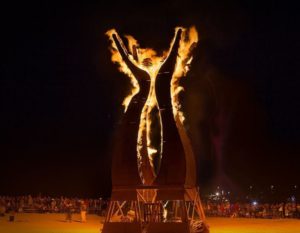
Midburn Festival: Shabbat Spirit in the Holy Desert
Community and gratitude are the twin pillars of Jewish spirituality. This is something that is practiced at the Shabbat table and also at this year’s Midburn Festival on October 25th. This five day extravaganza in the Negev was conceived around the same ten principles developed by Burning Man creator Larry Harvey in 2004. These are immediacy, leaving no trace, radical self reliance, radical inclusion, radical self expression, participation, gifting, decommodification, communal effort, and civic responsibility. This year’s theme is “return” symbolizing a return to community life, creativity in numbers, and artistic participation in a post pandemic world.
To its attendees, the Midburn Festival is considered to be much more than a music event in a holy desert. During those five days an entire city and culture is created out of thin air. The festival even has its own language expressed through dynamic symbols. There are no spectators or visitors in Midburn. Everyone is an equal participant in creating and maintaining the artistic joy of the city. In many ways the Midburn Festival can be compared to a spiritual pilgrimage. At the end of the journey the large wooden sculptures that adorned the desert landscape are set on fire. This honors two of the ten festival principles, to leave no trace and community participation.

Sparks of Creation
Spirituality is rooted in every part of creation but none more so than in food and music. As human beings we pour ourselves into our creations. When we eat a meal someone has prepared for us or listen to a piece of music they have composed we share in their spirit. These are also some of the most intimate activities we can share with others. Experiencing good food and good music together can break down the highest walls between people. So generate some spiritual sparks of creation into your life and don’t miss out on these amazing Shabbat and Israeli music festival experiences!
